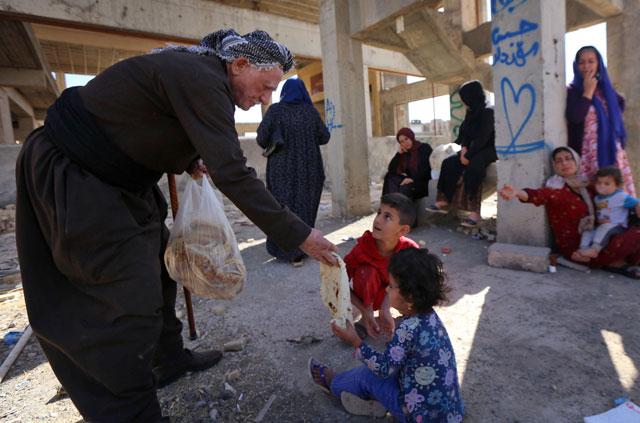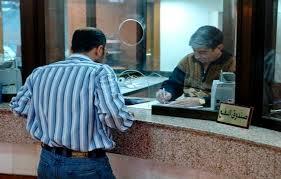You are here
‘Kurdish forces withdraw to June 2014 lines’
By Reuters - Oct 18,2017 - Last updated at Oct 18,2017
KIRKUK, Iraq — Kurdish peshmerga forces have retreated to positions they held in northern Iraq in June 2014 in response to an Iraqi army advance into the region after a Kurdish independence referendum, a senior Iraqi commander said on Wednesday.
An Iraqi military statement said government forces had taken control of Kurdish-held areas of Nineveh province, including the Mosul hydroelectric dam, on Tuesday after the peshmerga pulled back. On Monday, Baghdad's forces recaptured the major oil city of Kirkuk to the south shortly after the peshmerga abandoned it.
The peshmerga had advanced into Nineveh and the Kirkuk region over the past three years as part of the war against the Daesh terror group militants, filling a void left by a temporary collapse of the Iraqi army in the face of a Daesh onslaught.
"As of today we reversed the clock back to 2014," the Iraqi army commander, who asked not to be identified, told Reuters. There was no immediate comment from Kurdish leaders.
The territory taken by the peshmerga as it rolled back Daesh was outside the official boundaries of the autonomous Kurdish Regional Government (KRG), mainly in Kurdish-populated areas claimed historically by the Kurds.
With this week’s withdrawals from disputed territories, Peshmerga forces appeared to have re-deployed roughly along the KRG’s boundaries.
Iran and Turkey joined the Baghdad government in condemning the Iraqi Kurds’ September 25 referendum, worried it could worsen regional instability and conflict by encouraging their own Kurdish populations to push for homelands.
With the referendum having given Iraqi Prime Minister Haider Al Abadi a political opening to regain contested land and shift the balance of power in his favour, it may prove a gamble that makes the KRG’s quest for statehood more elusive.
Around 61,200 people were displaced Iraq’s military operation in and around Kirkuk, a city of over 1 million, over the past 48 hours but most were now returning to their homes, the UN humanitarian affairs office in Baghdad said.
Witnesses said, however, that dozens of Kurdish families began to flee Kirkuk on Wednesday for Sulaimaniya inside the KRG for fear of attack by Shiite Popular Mobilisation paramilitaries, allied with Baghdad and armed by Iran, that had entered the city along with government forces.
“We have a family member with the peshmerga and we are afraid we might get arrested by the Popular Mobilisation. We are fleeing towards Sulaimaniya,” said the driver of one car filled with his family.
At least 150 vehicles were seen streaming out of Kirkuk at one point. But most subsequently turned around and returned home after local police assured them that fears of reprisals were groundless, a Reuters reporter said.
Though Kurdish-owned shops in Kirkuk were mainly closed on Wednesday due to concern about the presence of Shiite militia, there were no reports of serious incidents as federal security forces patrolled the streets, witnesses said.
“We call on all parties to do everything possible to shield and protect all civilians impacted by the current situation,” Lisa Grande, the UN humanitarian coordinator in Iraq, said.
Abadi ordered the prosecution of anyone found circulating fake videos aimed at inciting strife between Kurds and Arabs and endangering civil peace in areas retaken by Baghdad’s forces.
The Kurdish vote was championed by KRG President and KDP Party Chief Masoud Barzani but not supported by the rival PUK Party, in part because of the strong opposition of the Kurds’ longtime ally the United States.
Related Articles
ERBIL/BAGHDAD Iraq — Iraqi Kurdish leader Masoud Barzani informed the region's parliament on Sunday that he would give up his position as pr
ERBIL, Iraq/BAGHDAD — About 100,000 Kurds have fled the Kirkuk region for fear of persecution since Iraqi armed forces retook disputed terri
BAGHDAD - Iraq sent money to pay salaries of state employees in the Kurdish region on Monday for the first time since 2014, the Baghdad gove
















